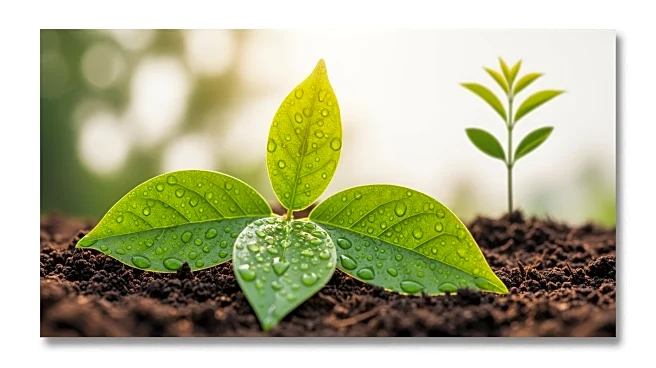What's Happening?
Sarawak has demonstrated its commitment to sustainable agriculture at the COP30 Climate Summit in Belém, Brazil. Represented by State Deputy Minister of Energy and Environmental Sustainability Datuk Dr Hazland Abang Hipni, Sarawak highlighted its efforts
in regenerative farming and the integration of indigenous knowledge. The session, themed 'Science Panel for Borneo: Safeguarding Borneo’s Biodiversity for a Sustainable Future,' focused on harmonizing agricultural policies across Borneo. Dr Hazland shared insights from the Sarawak Sustainability Blueprint 2030, which outlines strategies for climate-smart farming and supports smallholders. Key initiatives include financial incentives for regenerative practices, investment in green infrastructure, and public-private partnerships. The blueprint aims to expand protected areas and promote sustainable forest management, with a target of restoring 200,000 hectares by 2030.
Why It's Important?
Sarawak's participation at COP30 underscores its leadership in regional sustainability efforts, aligning with global frameworks like the Heart of Borneo Declaration. The focus on sustainable agriculture is crucial for ensuring food security, climate resilience, and ecological integrity. By linking sustainable products to markets that value ecological stewardship, Sarawak aims to make sustainable agriculture economically viable for farmers. The integration of indigenous knowledge with modern science is pivotal in building climate-resilient systems. These efforts contribute to global sustainability goals and highlight the importance of inclusive and community-driven agricultural progress.
What's Next?
Sarawak plans to continue its efforts in sustainable agriculture by training 500 skilled farmers by 2030, empowering smallholders and indigenous leaders. The collaboration between the Sarawak Biodiversity Centre and indigenous communities will document traditional knowledge and support bioprospecting efforts. These initiatives are expected to provide both environmental and economic benefits, ensuring long-term success in sustainable agriculture. The state's commitment to expanding protected areas and promoting sustainable forest management will further enhance its climate strategy.
Beyond the Headlines
The integration of indigenous knowledge systems with scientific research and advanced technologies is a key aspect of Sarawak's approach to sustainable agriculture. This collaboration not only preserves ecological wisdom but also enhances the effectiveness of modern agricultural practices. By prioritizing community-driven progress, Sarawak is setting a precedent for other regions to follow in achieving sustainable development goals.















